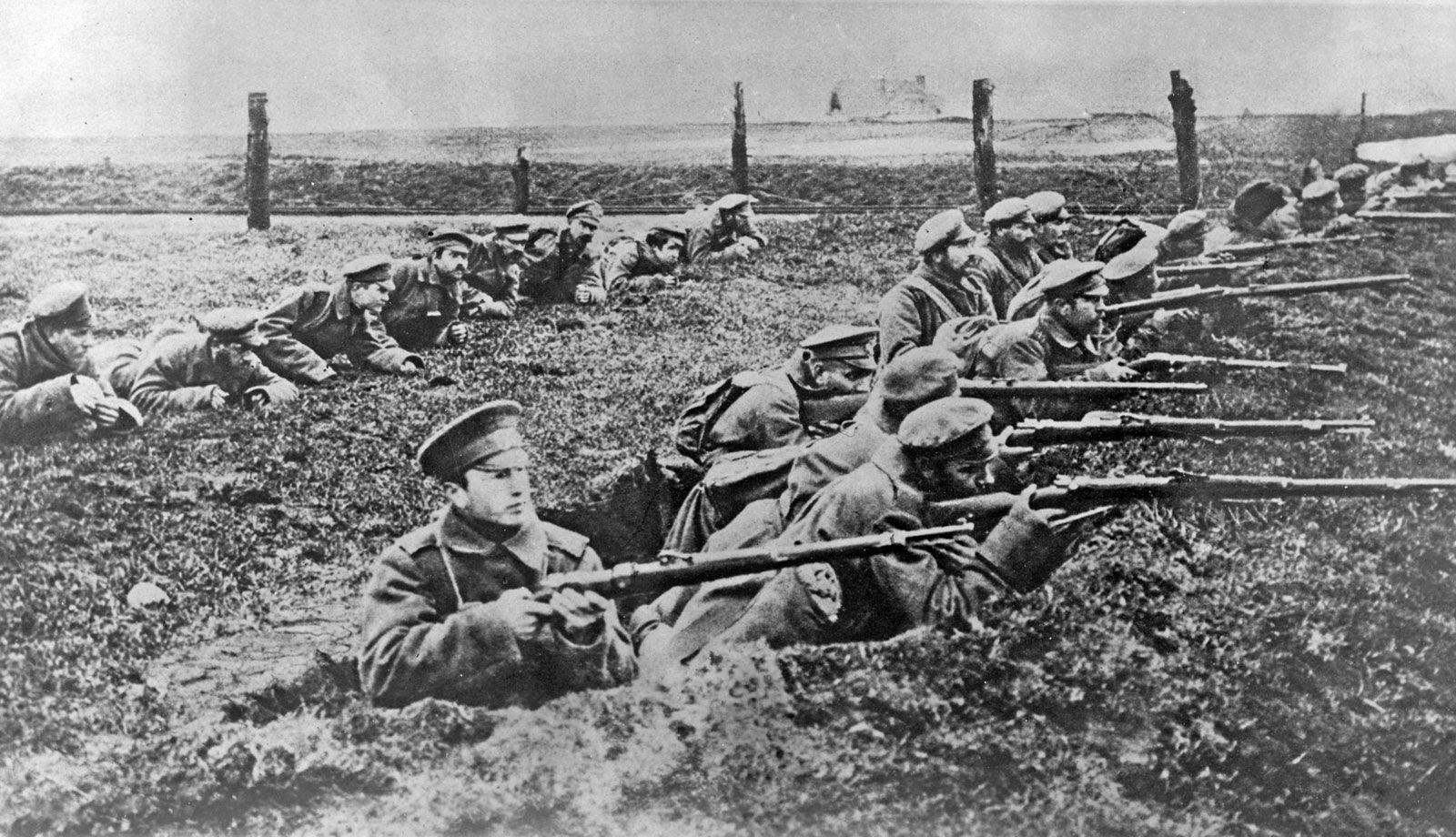The eastern front, where the Russians faced both the Germans and the Austrians, was crucial to Allied tenacity in the West. Millions of men were involved on both sides, and had the Russians not held out until the end of 1917, the Allies in the West could hardly have withstood the reinforcements that the Germans and Austrians would have been able to send to France and Italy. Though the war in the East was more fluid than the war in the West, even in the East there were long periods of stalemate.
The Russians began well. They took the Galician capital of Lemberg, now Lvov, and by the end of September 1914 they had reached the northern ends of the passes leading into Hungary through the Carpathian Mountains. On August 19-20, 1914, the Russians won the battle of Gumbinnen. The alarmed Germans reorganized their eastern command.
The brilliant general Erich Ludendorff (1865-1937), under the nominal command of Paul von Hindenburg (1847-1934) and aided by the exceptional staff officer Max von Hoffman (1869-1927), moved successfully against the two Russian armies. Late in August at Tannenberg, the Germans decisively defeated a Russian army, taking 100,000 prisoners. Early in September the Germans again won decisively at the Masurian Lakes, taking another 125,000 prisoners.
The Germans’ hard-pressed Austrian allies to the south were by now clamoring for help, and the western front was still demanding men. Hindenburg and his aides had to do their best with what they had. In a series of hard-fought battles in Poland, they relieved the pressure on the Austrians. The end of 1914 found the Austrians hanging on in Galicia and the Germans in a good position to push eastward from East Prussian and Polish bases. In two great joint offensives in May and July 1915 the Central Powers won substantial successes, inflicting on the under-equipped Russians severe losses from which they never really recovered.
In 1916 the Russians, with a new commander, General Aleksei Brusilov (1853-1926), undertook a major new offensive against the Austrians in the south. The Brusilov offensive was begun without adequate preparation. It scored a striking success at first, in places driving the Austrians back some eighty miles, and taking 200,000 prisoners. Once more the Germans came to the rescue; with fresh troops transferred from the West, they halted Brusilov, costing him a million men and exhausting his supplies.
It was in the backlash of this defeat that the Russian Revolution, which began early in March 1917, was born. During the moderate early phase of that uprising, before the Bolshevik revolution of November 1917, Brusilov undertook one last desperate offensive. But he was soon checked, and the Russian army began to disintegrate; the way was open for the Bolsheviks to carry out their promise to make peace.
By the end of 1917 Russia was out of the war. It was forced by the Central Powers to sign the punitive Peace of Brest-Litovsk (March 1918), by which Russia lost its Polish territories, its Baltic provinces, the entire Ukraine, Finland, and some lands in the Caucasus. The last went to Turkey; most of the others came under what proved to be the temporary domination of Austria and Germany.

